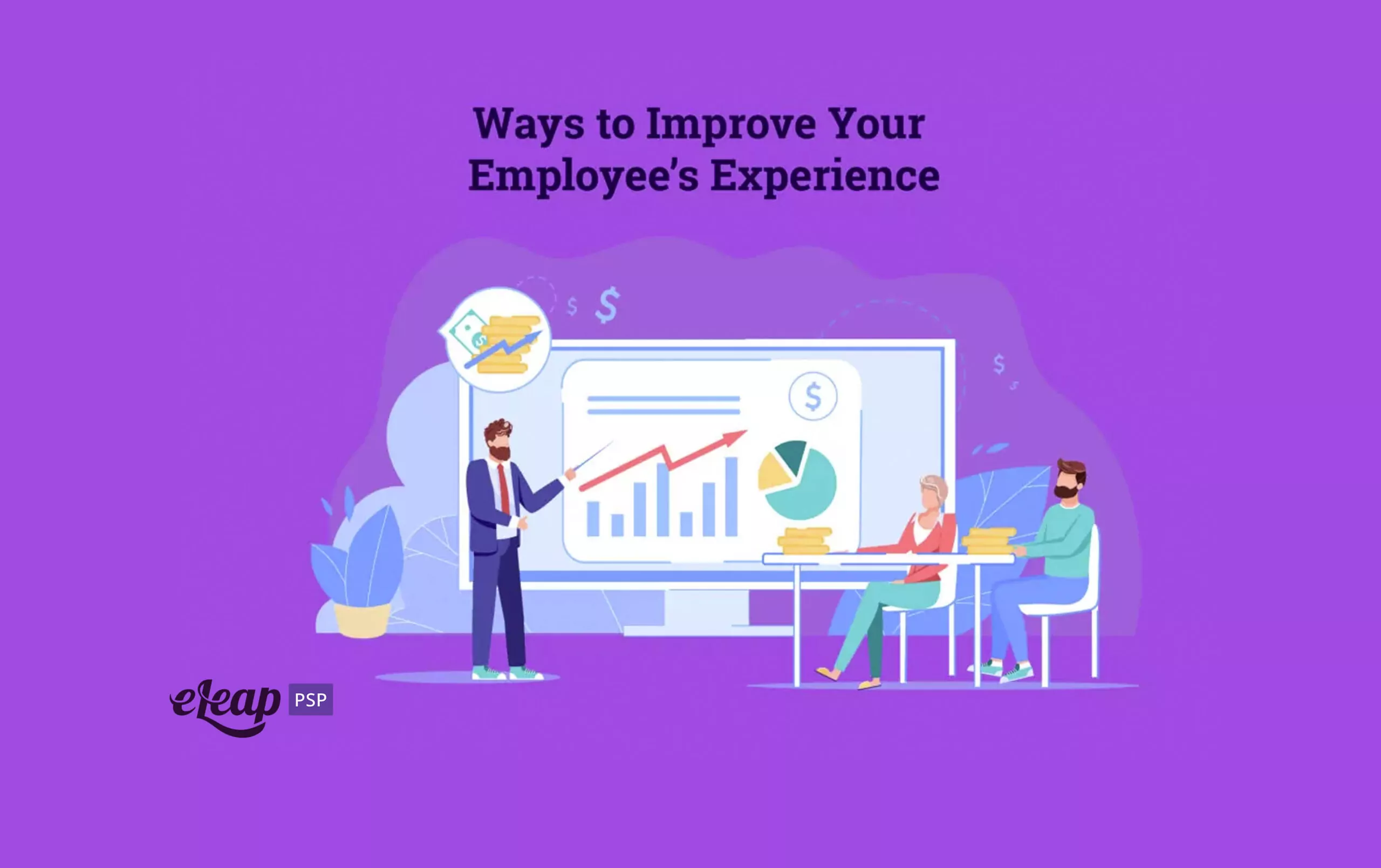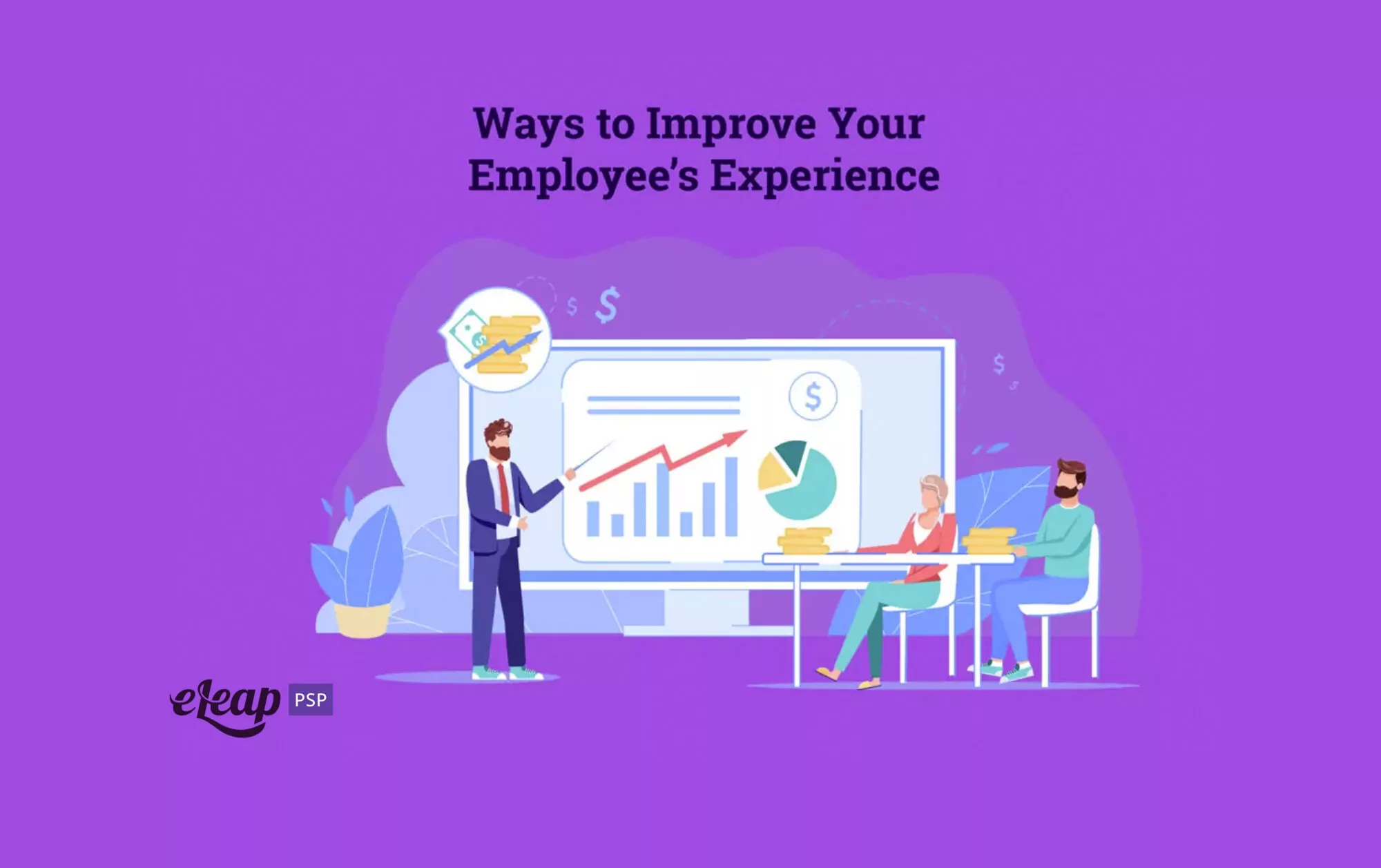Ways to Improve Your Employee’s Experience

When employees have the luxuries of being more selective about the jobs they take, the best way to prevent turnover is to make sure that your employee’s job experience is the best it can possibly be. It’s no longer sufficient to just offer better compensation than other companies, particularly when it comes to millennials, who overall value a good experience more than high pay.
A poor employee experience can spread like wildfire and negatively affect engagement rates among your workforce in general. A surprising number of employees aren’t as engaged at work as they could be, and thus aren’t performing to their highest ability. More often than not, overall employee experience has a lot to do with this. If you want to improve engagement rates, performance, and overall employee experience, here are some tips to follow.

Take Advantage of Your Tech
Technology can be a big competitive advantage and very attractive to modern job seekers. Technology can also help to show that a company is forward-thinking and innovative. It’s also an important resource that can help employees do their jobs more effectively and efficiently. Ensuring your employees have the proper resources to do their jobs as well as they can is critical to a good overall employee experience. These days, that means incorporating technology that can help employees do their jobs more efficiently. However, you want to make sure that any technology you use is helpful, easy to access, and seamlessly integrated. Never force technology for the sake of it.
Trust Your Employees
Micro-managing is a sure-fire way to decrease your employee’s overall job satisfaction. It’s important that you trust your employees and build a strong connection with them. In fact, there is research to show that trust actually improves and fuels productivity levels amongst employees. What’s more, if you want your employees to trust their leaders, then their leaders need to trust them too. Trust works both ways. If leaders are going to lead well and be honest with their feedback, then they need to be trusted. Similarly, if you want your employees to work to the best of their ability and be engaged, leaders need to trust them too. Granting trust also allows employees to be more autonomous in their everyday work and career growth, which is important for the overall employee experience.
Autonomy enables employees to feel more focused and empowered, particularly in the areas where they feel they are very valued. Trust is the ultimate gateway to autonomy. And the independence that comes with trust and autonomy is critical for helping employees feel confident in the role. This confidence can then snowball into better mastery of skills, engagement, productivity, and overall job satisfaction.
Ensure There Is Room for Growth
Employees who have room to continuously learn and grow within an organization are significantly more likely to have higher levels of overall engagement and job satisfaction. Professional development should be prioritized by your company because it improves the employee experience, productivity, and retention rates. Technology also means that it’s significantly easier to integrate learning into your employees’ jobs. You can use microlearning to implement continuous development into the work that your employees do every day. Online learning solutions are something that your company should certainly invest in. They’re very powerful for development, which leads to an overall improved employee experience.
Focus on Career Development
Making sure that you have regular conversations with your employees about their career paths is critical. It shows that you care about your employees, but career development conversations also have a link to increased engagement and job satisfaction. If employees feel that they can have open, regular conversations with leadership about their career path, they’ll truly feel like they have a future working for your company. It’s important that leaders are committed to regularly discussing career development with their workforce and helping employees outline their long-term and short-term career goals. By helping to map out personalized career paths with each of their employees, managers can have a significant positive effect on the overall work environment and employee experience. It shows how much you care, and also how great you wish to see each and every one of your employees excels in their career.
Foster an Environment of Communication and Collaboration
Collaboration is critical for leaders and entire workforces. The basis of collaboration is communication, so start by ensuring that communication is healthy and open within your company. Communication should be intentional and frequent, as well as positive. Lack of communication, or negative communication, can ruin your company’s culture as well as trust and motivation amongst your employees. What’s more, without communication, there will be no grounds for good collaboration amongst your workforce. Feedback is an important part of good overall communication. Your company and leaders should encourage feedback and work to help employees seek feedback on their own. Honest feedback and open communication help to build trusting, quality connections amongst employees and leaders. Collaboration is then born from good communication. Most of the time, team members have the desire to collaborate with one another. But if their work environment doesn’t allow for or encourage collaboration, then they’re on their own, and this will likely make them unhappy. Employees who can easily talk to one another and collaborate together are much more likely to feel comfortable in their work environment. They’re also more likely to be able to solve problems and access the resources needed to do their jobs as effectively as possible.
Fostering an enjoyable, productive, engaging, and positive work environment is critical. In this day and age, employees value a positive employee experience more than anything else. A poor culture, negative work environment, and bad overall experience will drive employees away no matter how much you’re paying them. Employees want to feel valued within a company, feel connected to the work they do and enjoy their jobs every day. They also enjoy the focus on career growth, development, and continuous learning.